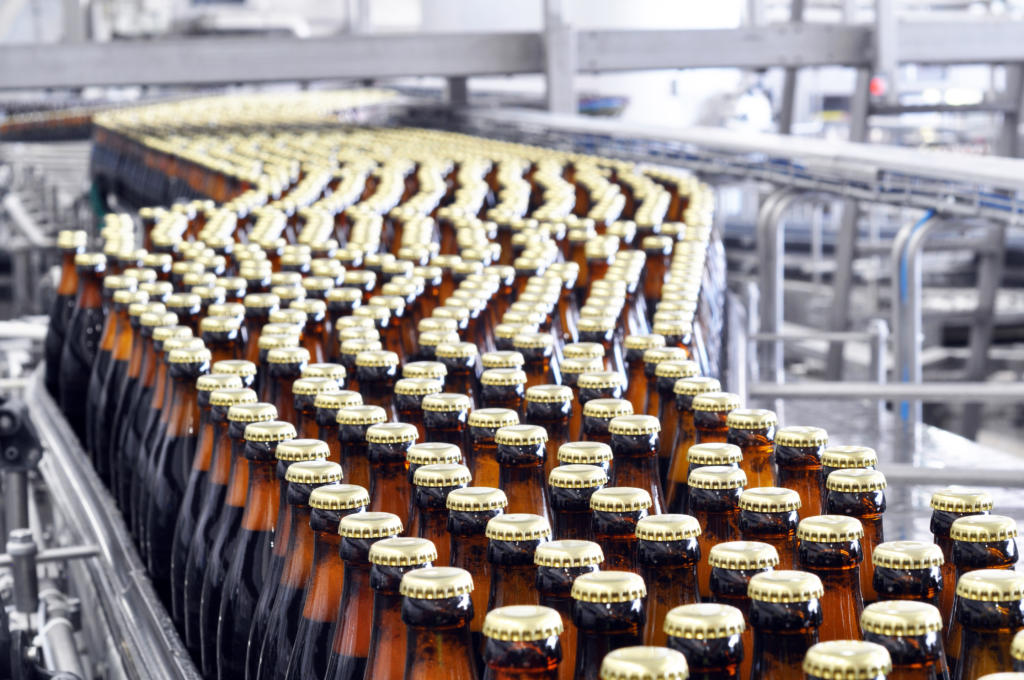
Under the European Food Information to Consumers Regulation No 1169/2011 (FIC) and the Food Information Regulations 2014 (FIR), there are mandatory requirements for items of information to be included on bottles, cans cask and keg labels.
These regulations are in place to protect consumers and more specifically, to ensure that consumers have the correct information to make an informed purchase. The consequences of mislabelling can include prosecution.
This article does not consider the circumstances for the UK post–Brexit, and it is unclear how Britain’s anticipated exit from the European Union will change the obligations. It is suspected that the content of this article will remain applicable for UK exporters of beer bottles, cans and draught products to the EU.
Mandatory requirements
Bottles & Cans
The following information must be provided directly on the packaging or on an attached label on both bottles and cans:
1. The legal name of food
For example, “beer”. The name should be in the language(s) relevant to the countries in which the product is to be marketed. This is subject to minimum font size requirements, depending on the size of the surface area of the packaging or labelling.
2. Alcoholic strength
The amount of alcohol contained to a maximum of one decimal place in the format ‘x% Vol.’(ABV) i.e. 4.0% Vol.
3. Ingredients
If the beer is stronger than 1.2% ABV, the ingredients do not have to be listed on the labelling. However, a QUID (Quantity Ingredient Declaration) is required if the name of the beer refers to a particular ingredient. SIBA gives the example of ‘Honey Beer’ – the percentage of that ingredient i.e. ‘honey’ must be declared within the ingredients.
4. Allergens
Allergens must be declared; allergens can either be listed in bold within an ingredients declaration, or alternatively, they can be listed as “Contains: X”. It is also mandatory for details of allergens to be available for a large pack of beer or on draught beer as sold to the consumer.
5. Net quantity
For example, 500ml. The net quantity must be in the same field of vision as the legal name of food and the ABV.
6. Best before date
This must be included.
7. Brewery name, addresses and/or website
This must be included.
8. Batch/lot/gyle number
This does not need to be included if the best before date is being used for batch traceability.
9. Country of origin
This is mandatory where the failure to declare would be misleading to consumers, for example, when exporting the products.
10. Special storage conditions/conditions for use
This should specify any instructions to ensure appropriate storage conditions i.e. keep refrigerated/store in a cool dry place.
11. Instructions for use
Instruction should be provided where it would not otherwise be possible to make appropriate use of the product.
Draught products i.e. casks and kegs
Requirements 1-11 as detailed above also apply to casks and kegs.
12. Total Saleable Volume
This must be declared on the cask labels i.e. total saleable volume 30 litres – this must exclude the unsaleable sediment.
Best practice
There are further details which may be included on the packaging, which may be considered best practice in the brewery industry in light of recent trends. For example, optional extras like the brewery’s social media details, recycle symbol, unit alcohol content, pregnancy message, drinkaware.co.uk, age-restriction and responsibility statement – to name a few, can be considered best practice.
Intellectual Property
The inclusion of either the registered trade mark symbol or the unregistered trade mark symbol on your packaging can be crucial to promote and protect your brand and/or product. It is important to note that the registered trade mark symbol can only be used if the mark to which it is applied is a registered trade mark. Trade marks which are not officially registered can be marked with a TM symbol to indicate that a business is using something – be it the word mark, figurative mark or a combination of the two.
Protecting a logo or brand name by way of trade mark registration is crucial to ensure that it is not copied and that no other organisation or business can benefit from your reputation of the beer brand and/or equally damage it.
